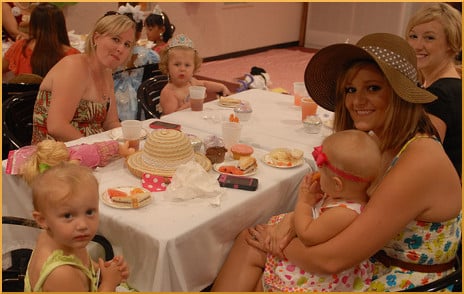Registered dietitian Maryann Jacobsen runs a great website with consistently interesting and helpful articles, often in list format. One such list names 10 verbal mistakes that parents can make in the course of trying to prevent or change the course of childhood obesity. Yes, it matters what we say and how we say it. Our responsibility does not stop with bringing nourishing food into the home and preparing it and serving it at regular mealtimes in a pleasant atmosphere. The responsibility extends to words. To win the hearts and minds of children over to maximum health awareness, we need to avoid saying harmful and useless things.
Learning Grown-Up Skills
For instance, some kids seem to make a full-time hobby out of refusing to try any new food. Even if they deign to take a taste, they are likely to reject it and go back to the familiar territory of a few tried-and-true old faithfuls. Learning to appreciate different things sometimes requires a bit of time, and a few tries. A parent can help by acknowledging this. Widening the realm of acceptable foods is a grown-up skill, like the other grown-up skills that a child eventually learns. Planting this idea might facilitate the adoption of new foods into the hall of favorites.
The writer also urges explaining why requests are turned down. Most kids are good kids, and tend to cooperate better when they understand where a “no” is coming from. In addition, small children have a fuzzy concept of the future and what is likely to happen in the course of it. Maybe the child misunderstands, and thinks you mean “No licorice ever again.” Explaining that licorice time will be after supper might actually help.
Alternative Wording
This item is very important. It starts with what a parent should not say, then translates what it means to the child, and offers a reason for changing our parental behavior, and even a better alternative set of words to send out into the world:
“You didn’t eat enough. Take a few more bites and then you can leave the table.”
Translation: “Mom/dad/empty plate (external signals) are a better judge of when I’m done eating than what I’m feeling inside.”
A better thing to say: “Make sure you got enough to eat because the next meal won’t be until (breakfast, lunch, dinner, snack time).”
Rationale: When children are in charge of how much to eat, they learn how to effectively manage hunger (hint: sometimes, mistakes have to be made).
Jacobsen urges parents to understand that pickiness about food is a normal stage of development, and then to expunge the word “picky,” and any synonyms, from their vocabulary. Once a label is applied to a person, it may do various kinds of harm, and will definitely not lead to any type of beneficial result.
We won’t give away all of Jacobsen’s secrets here, but, speaking of labels, Childhood Obesity News offers a reminder about how truly counterproductive it can be to label a food “bad.” The word implies a judgmental attitude, which is never helpful in any situation — especially with kids who often delight in being “bad,” for myriad reasons beyond the scope of this post.
Your responses and feedback are welcome!
Source: “10 Things You Should Never Say to Your Child About Food,” RaiseHealthyEaters.com, 09/07/12.
Image by USAG-Humphreys.


 FAQs and Media Requests:
FAQs and Media Requests: 











